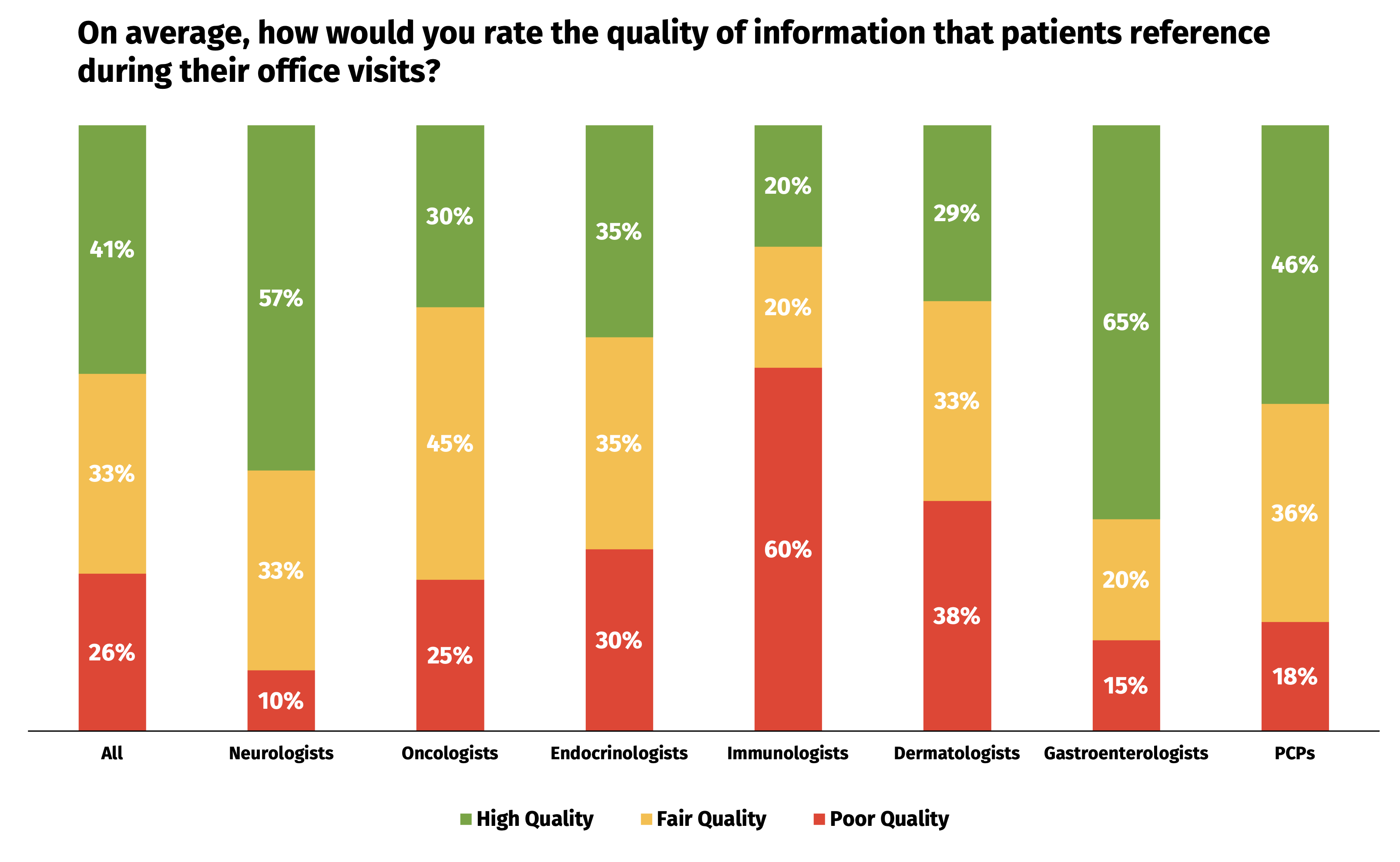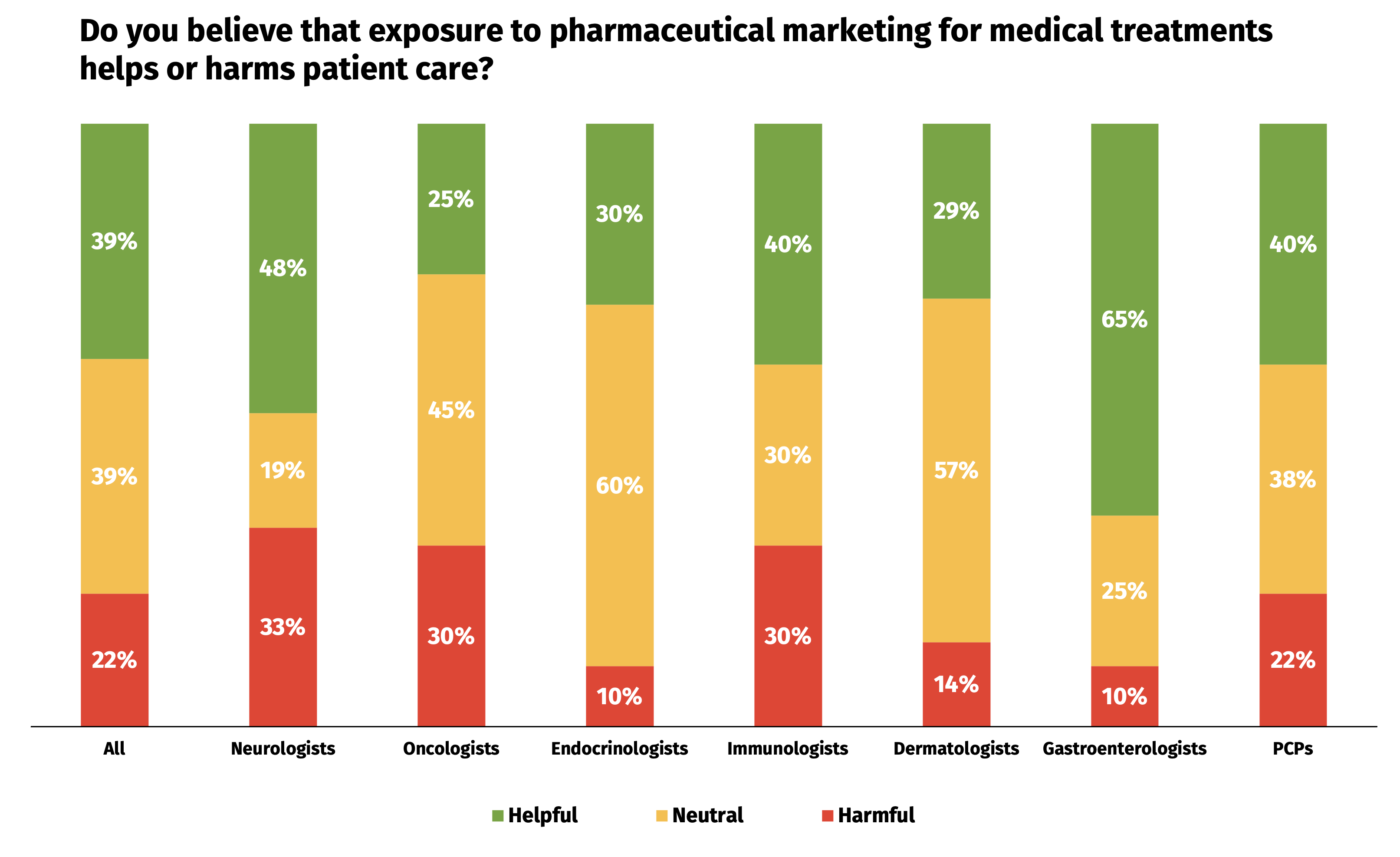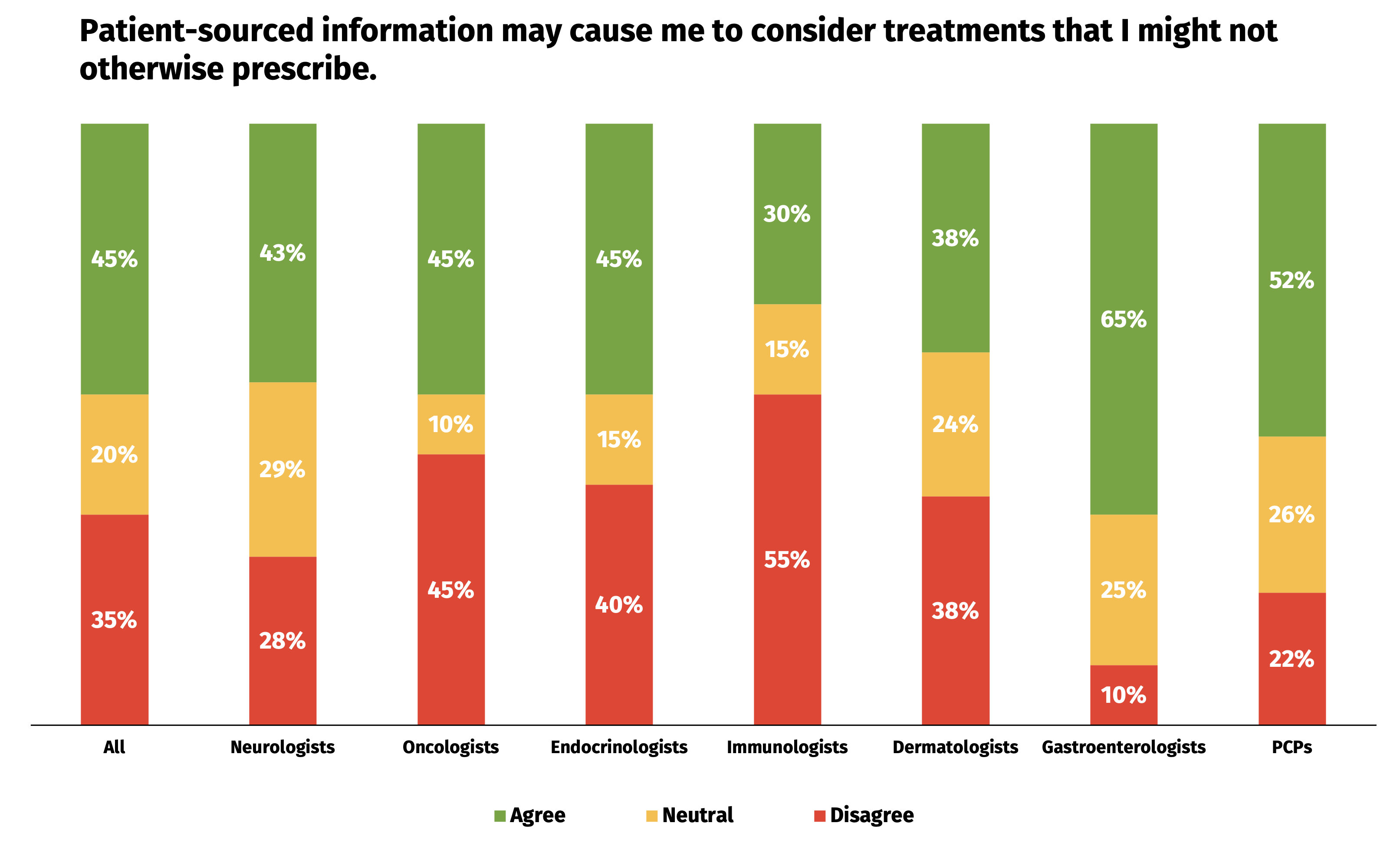When accurate diagnoses and treatments are delayed, patients pay the price—clinically, financially, and emotionally. While it’s not a panacea for all the challenges patients face, this white paper explores how life science marketers can be part of the solution through smarter HCP and DTC marketing strategies.
When accurate diagnoses and treatments are delayed, patients pay the price—clinically, financially, and emotionally. While it’s not a panacea for all the challenges patients face, this white paper explores how life science marketers can be part of the solution through smarter HCP and DTC marketing strategies.

2024 Survey: Specialist Perspectives – and the Surprising Differences
OptimizeRx’s 2024 independent survey of 170+ physicians across seven specialty areas showed that HCPs value informed, engaged patients, and highlighted a moderately favorable take on pharmaceutical brand marketing. But while the survey revealed broad trends across all participating physicians, we also took a deeper look into the data by specialty area – and found some intriguing differences of opinion.
Read on to explore three distinct sets of physician responses, as well as our take on the implications for pharma marketers in all specialty areas.
Do Patients Have Access to Reliable Health Information?

One of the first differences we noticed was the significant variation in physicians perceived quality of the information patients bring to office visits. While overall 41% of respondents viewed this information favorably, this average masked significant variations across specialty. Nearly two-thirds of gastroenterologists and over half of neurologists reported viewing patient-sourced information favorably. By contrast, immunologists had a significantly more negative view, with 60% reporting poor quality of information.
Pharmaceutical Marketing – Helpful or Harmful?

Overall, survey respondents generally believe the impact of pharma brand marketing is helpful or neutral, but a few specialties see real benefit for patients – notably gastroenterologists, neurologists, and PCPs. Conversely, oncologists, endocrinologists, and dermatologists are more skeptical, with lower percentages reporting favorable views. Interestingly, immunologists show a split view, with a slightly higher percentage deeming pharma ads helpful, but also a significant percentage seeing them as harmful.
How Relevant Are Patient Medication Requests?

Overall, nearly half of physicians reported that patient requests and information may cause them to consider a different treatment approach, but both gastroenterologists and PCPs reported much more openness than average. Immunologists were the most unlikely group to consider a patient-prompted alternative medication, whereas oncologists were more split, with even percentages both open and not open to patient requests.
Our Hypothesis: Information Quality Leads to Better Ad Perception – and Impact
While it’s always useful to better understand the opinions and behaviors of specialists in your brand therapeutic area, what we find most illuminating about these data snapshots are the gastroenterologist and immunologist responses. In gastroenterology, we see the same, a significant percentage (65%) believe their patients are finding high-quality information, view pharma advertising as helpful, and beare open to considering alternative medications based on patient information. Conversely, immunologists are skeptical about the quality of information their patients refer to, more likely than average to believe pharma ads are harmful to patients, and notably less likely to consider patient-prompted therapies. Coincidence? Or something more?
If you’ve read the survey white paper, you’ll remember that a whopping 70% of respondents agreed that when patient-sourced medical information aligns with the information physicians receive from pharma brands, it streamlines care. So, it’s logical to suggest that when patients have access to reliable health information at office visits, their HCPs are more likely to be open to patient medication requests. And if pharma ads are the ones delivering that reliable information, at the right time and to qualified patients, they’re more likely to be viewed favorably by physicians. Alternatively, when patients aren’t well-informed, pharma advertising may take some of the blame, and physicians are more reluctant to consider patient requests when prescribing treatment.
Well-Informed Patients Lead to Conversations that Convert
We believe that pharma marketing plays a critical role in educating and empowering patients; however, this reliable, vetted information can be too easily overlooked in a sea of healthcare “influencers.” When brand information reaches a qualified patient just ahead of a healthcare visit, it’s more likely to be recognized, remembered, and brought to their HCP. In turn, that HCP is more likely to acknowledge and consider the patient’s request – which makes that conversation more likely to result in brand conversion. Learn more about how we approach audience segmentation and targeting to create more empowered patients.



